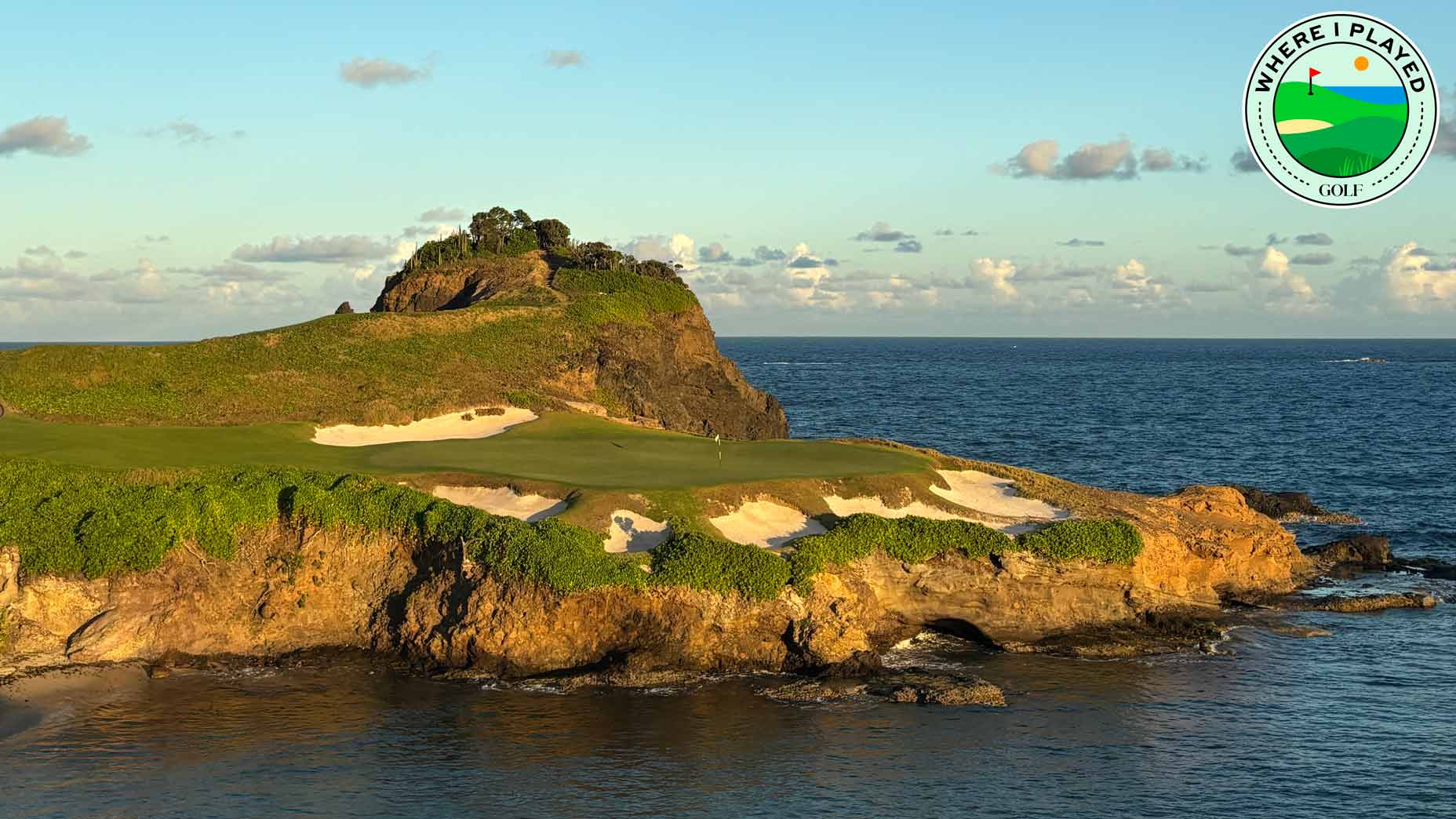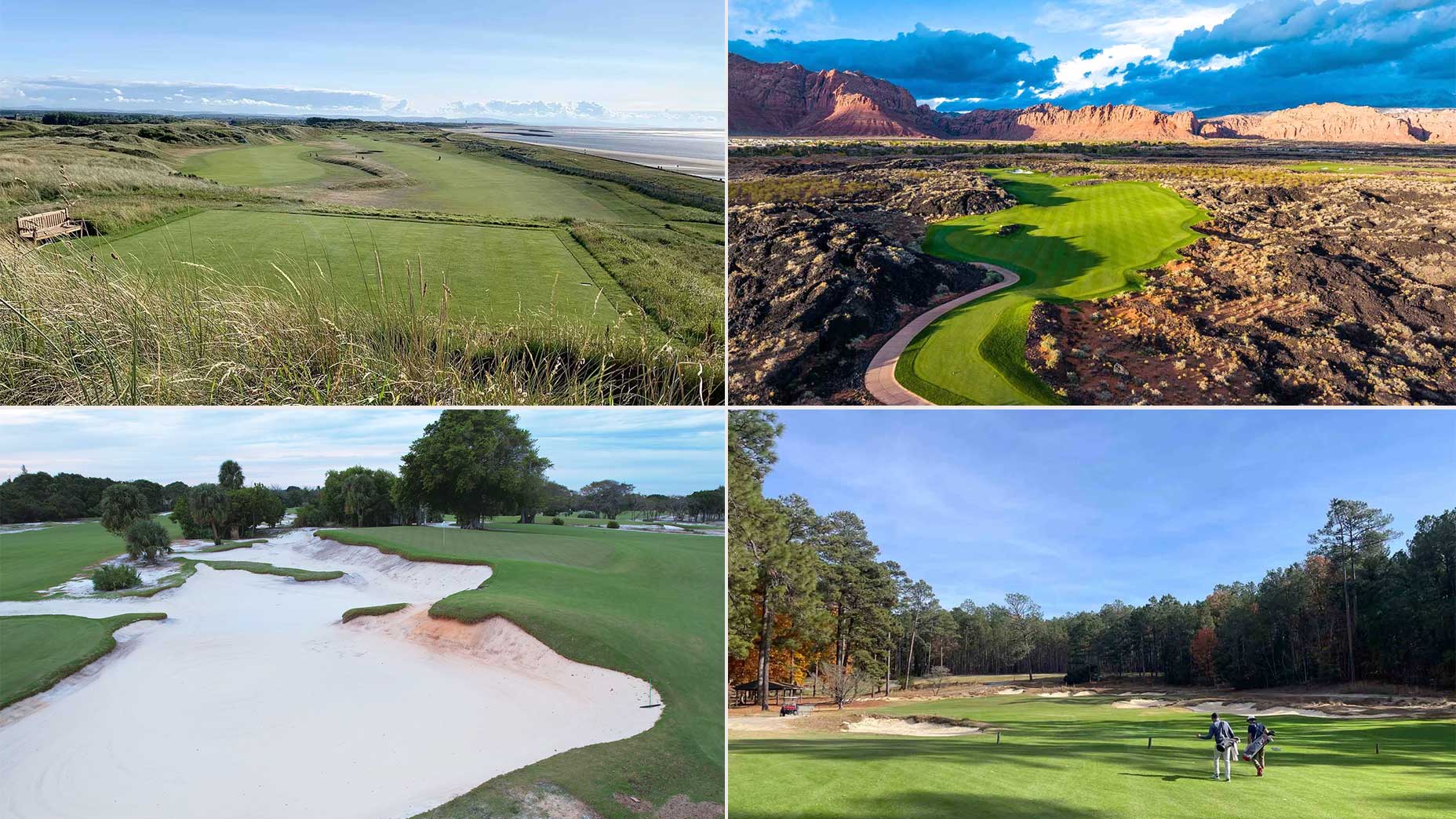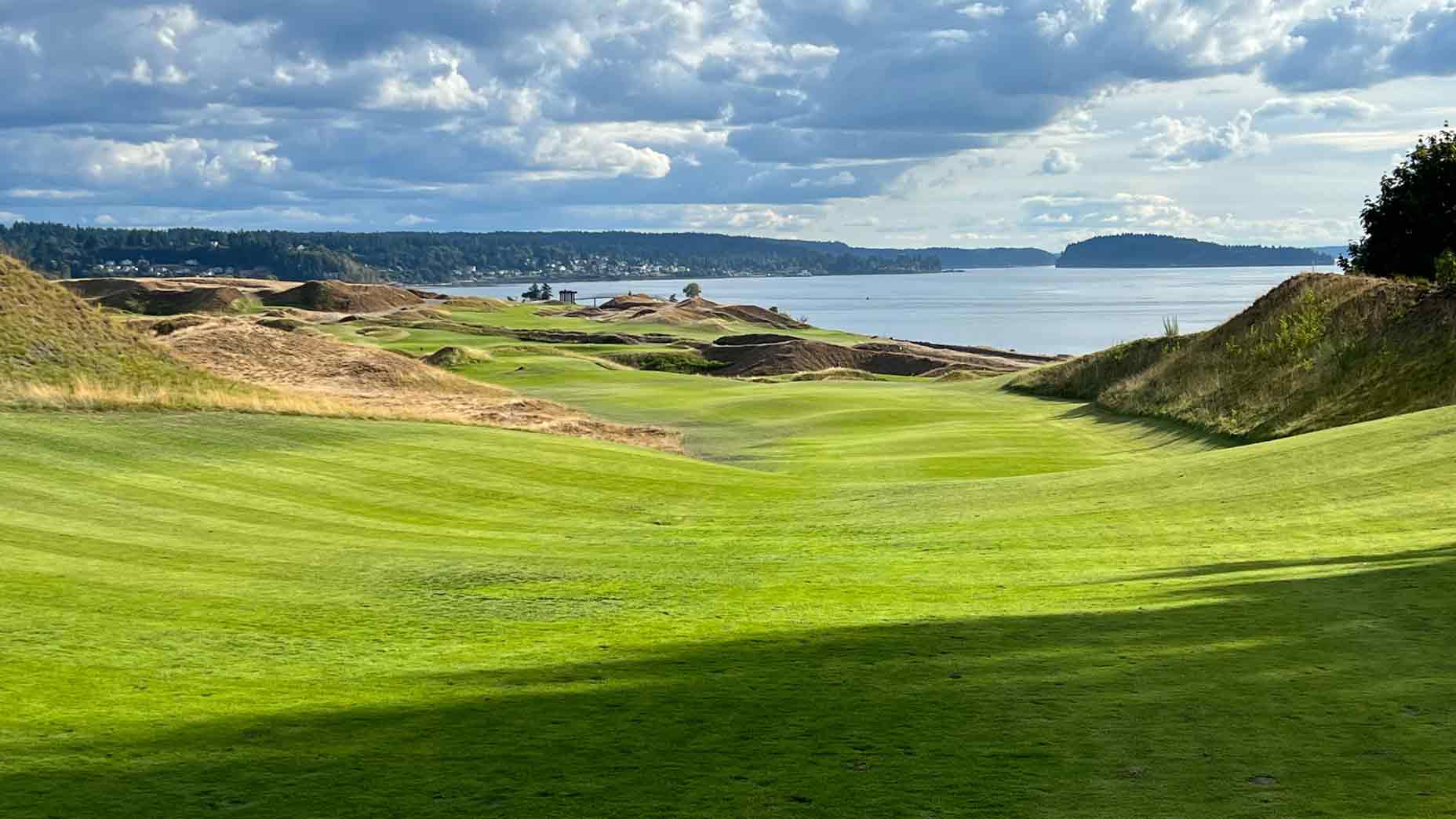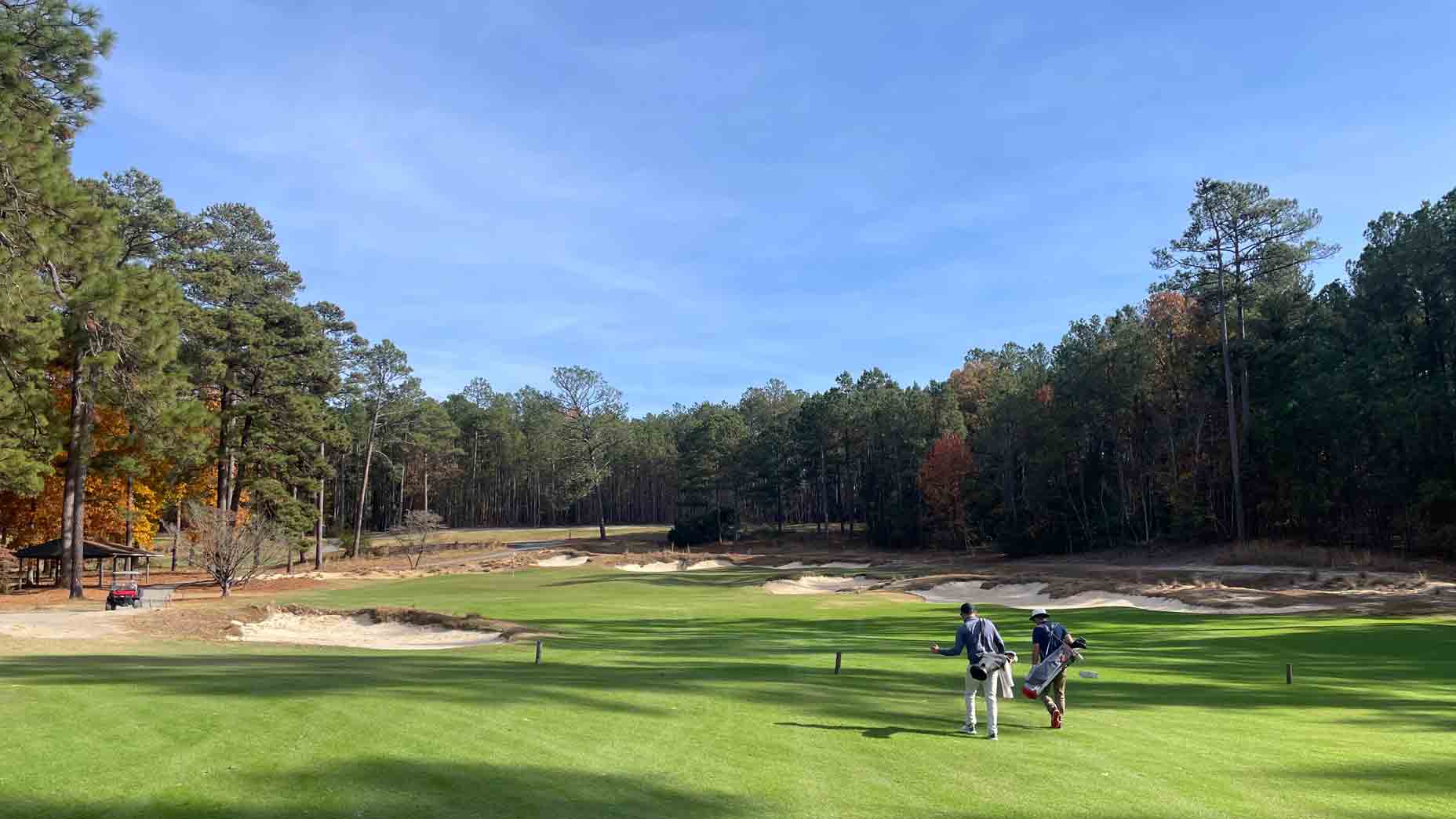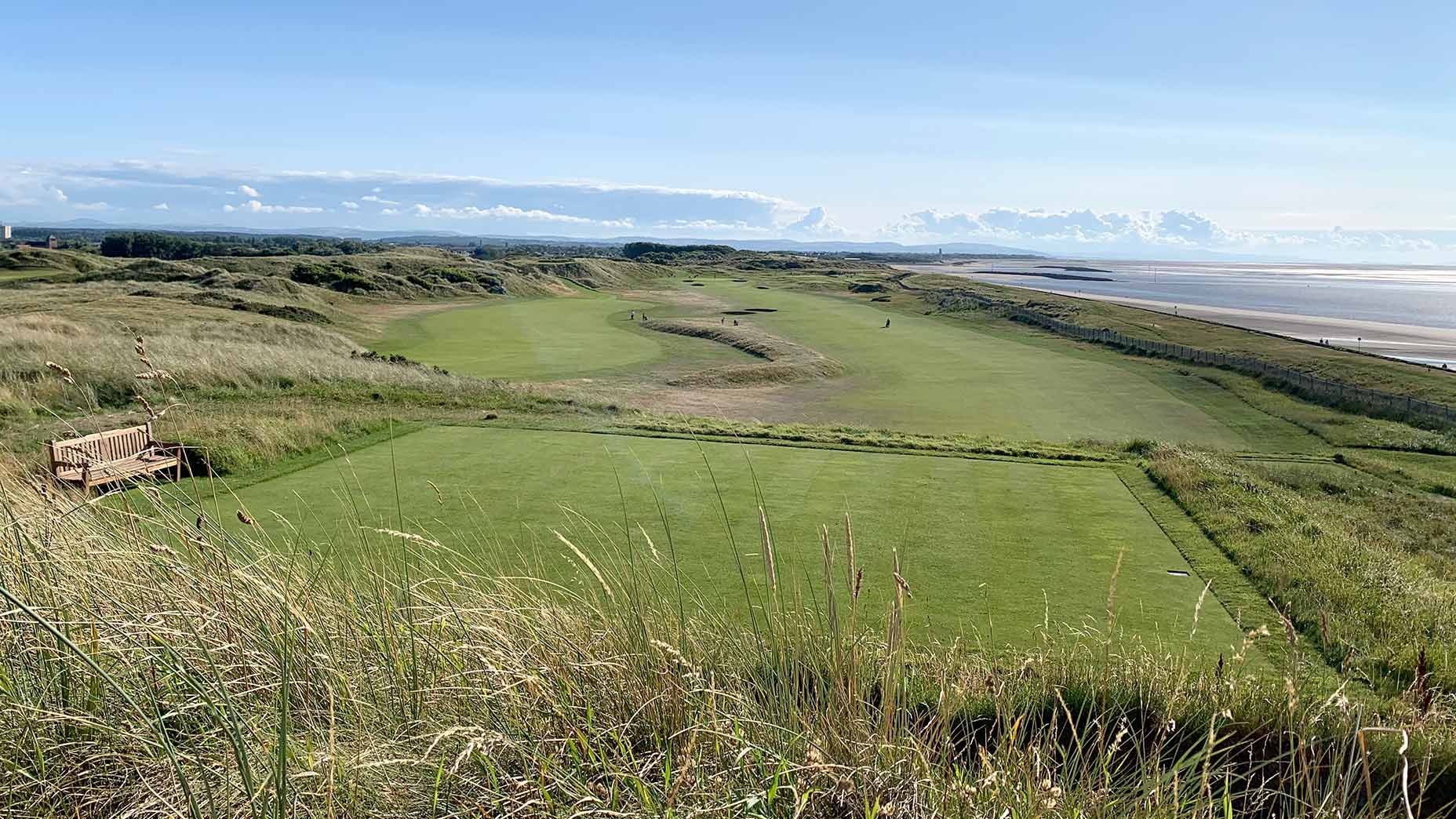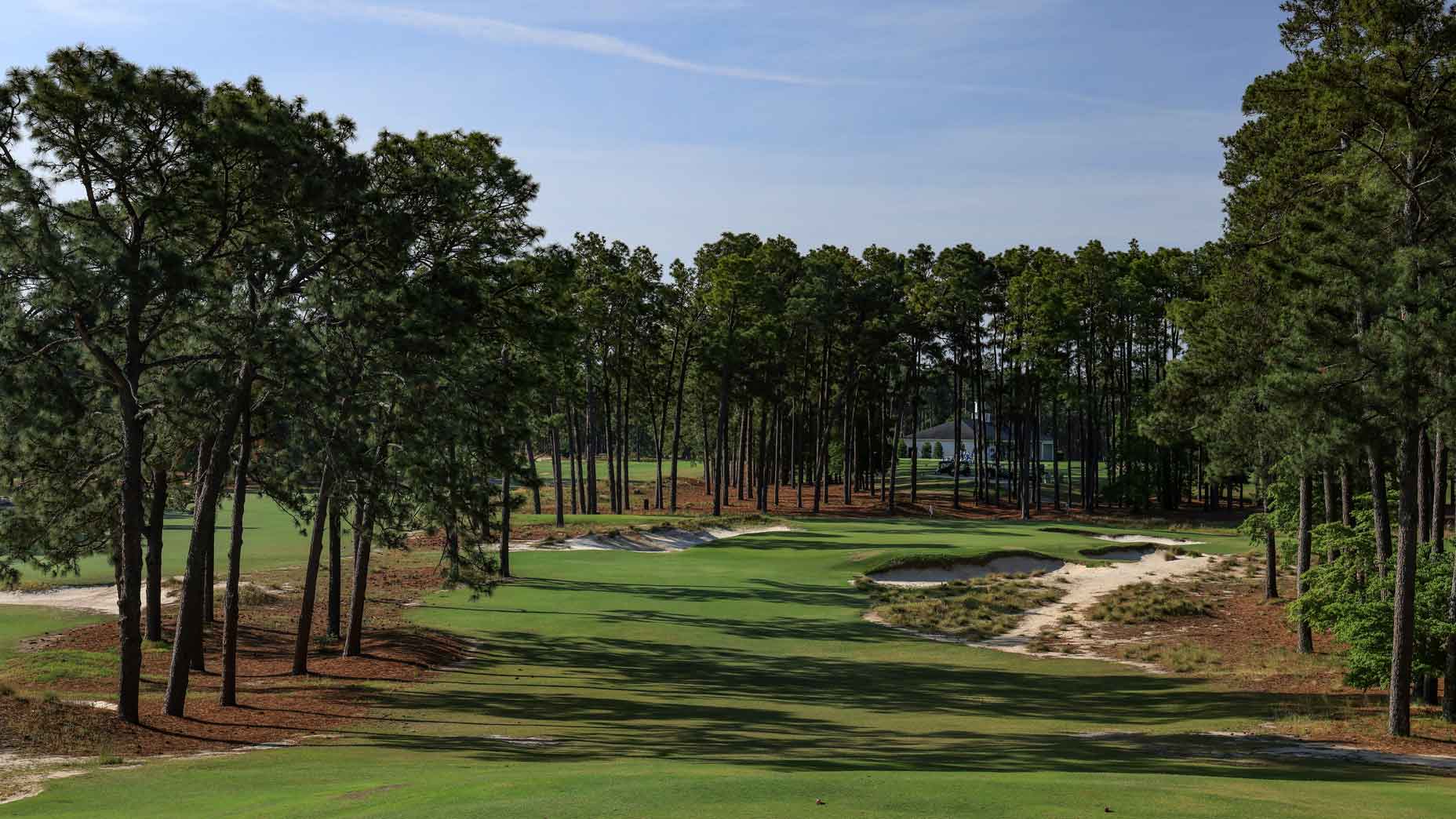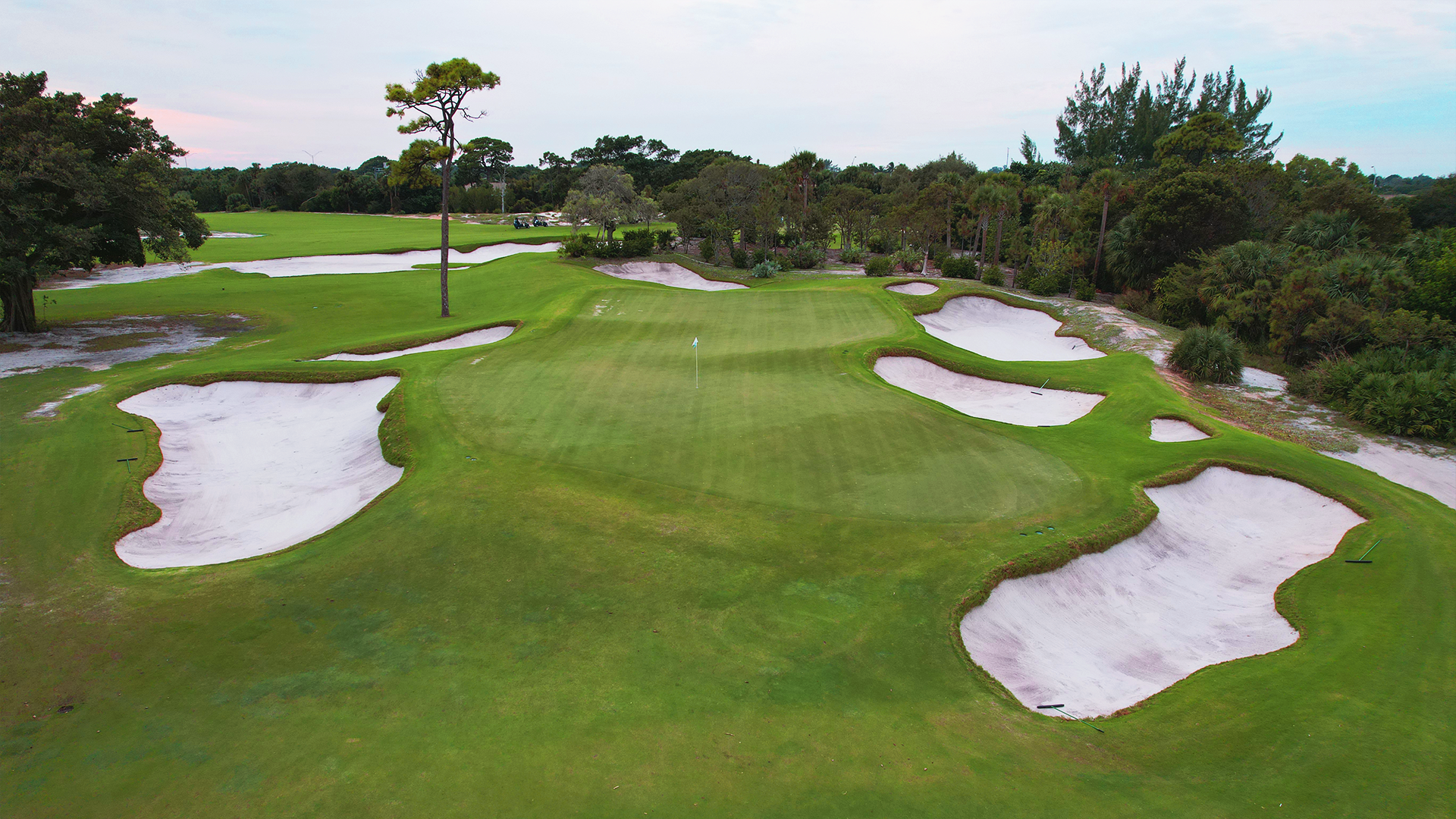Bent grass greens in Scotland? This Walker Cup host was my favorite course in 2023
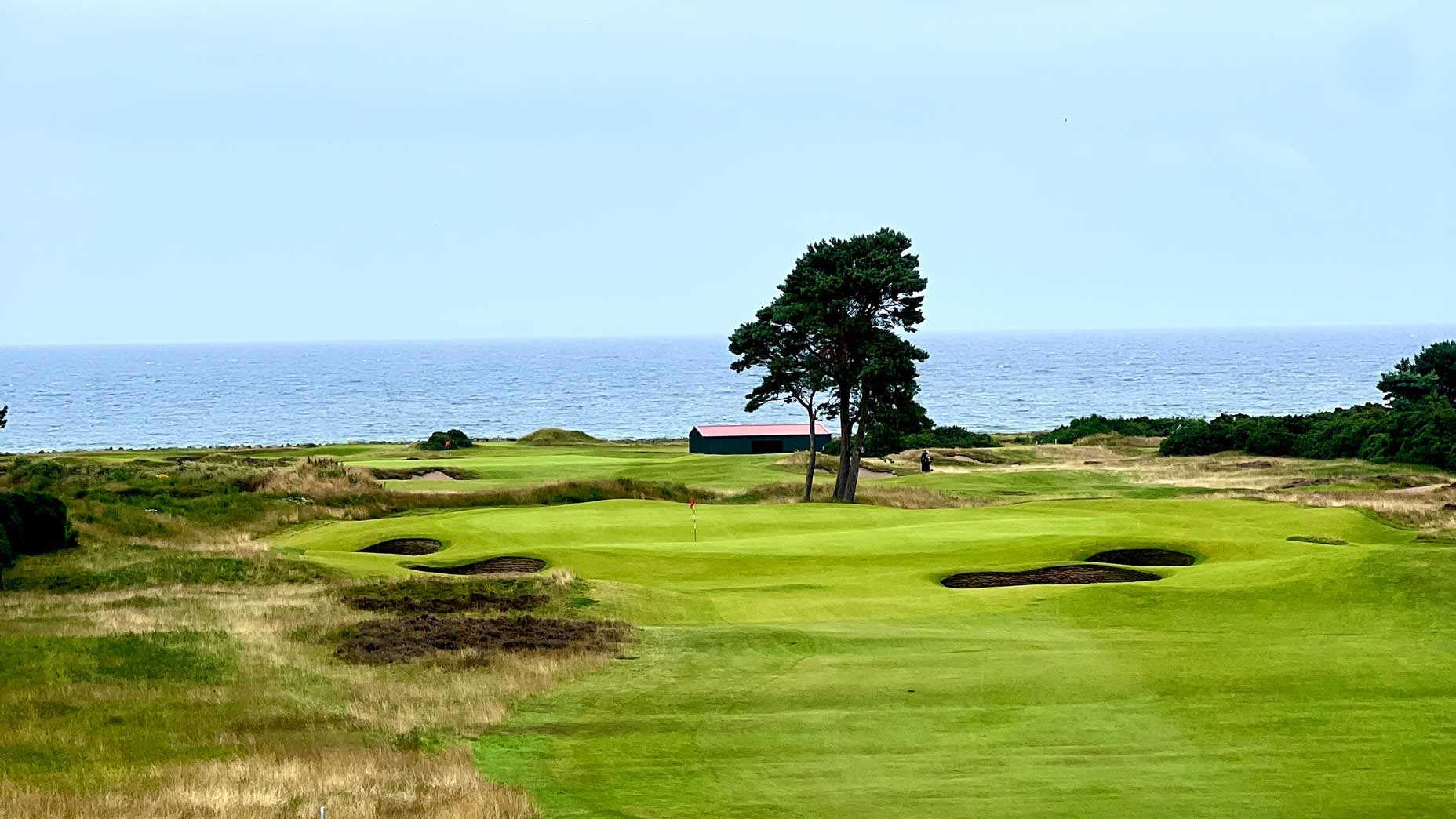
The 14th hole at Nairn Golf Club.
Jack Hirsh/GOLF
There is simply no better putting surface than the smooth fescue greens that you typically find on some of the best links courses in the British Isles.
They’re not the fastest in the world, they can’t be given the huge slopes and undulations of great UK greens and heavy ocean breezes that are native to the linksland. But well-kept greens in Scotland are arguably the most pure. The ball rolls out with no bumps or kicks. You don’t need to acclimate to the speed as much as you just know it.
At Nairn Golf Club, a highland club near Inverness, Scotland, that holds the distinction of being the northernmost Walker Cup host, you get a similar feeling. The greens putt like glass and it seemingly takes no effort to get the ball to the hole.
Nairn was my favorite new course I played in 2023.
Even on the dreary, wet and rainy day we played Nairn, the final round of an eight-round jaunt across the pond to Northern Ireland and the Scottish Highlands, the greens were firm and fast. They were faster than any other greens we played in 208 holes over the trip and there was a simple reason why.
Instead of fescue-putting surfaces, Nairn has grassed their greens with a strain of Bent, the type of grass more commonly found on courses in the northern United States and, notably, Augusta National. While it’s not the exact same type of grass you’re used to putting on (we’re talking brown-top Bent as opposed to creeping Bent) and they still can’t get to 13 on the stimpmeter, the blend of grasses at Nairn no doubt make for a wonderfully smooth putting surface.
Nairn General Manager Paul Mills said the course manager, Richie Ewan, led an effort over the last decade to convert the greens at the 1999 Walker Cup host site to more native grasses, which include brown-top Bent.
“I think there was a spell where they were a little bit more receptive than what they perhaps require,” Mills said.
The conversion was done in consultation with the R&A, and Nairn later added the 2021 Amateur Championship to its resume of tournaments hosted. The process was done over time and resulted in greens which are composed of about 70 to 80 percent Bent grass.
Nairn has huge greens with mostly subtle undulations, but the typical speed is around 9.5 on the stimp that can be pushed to 11, Mills said.
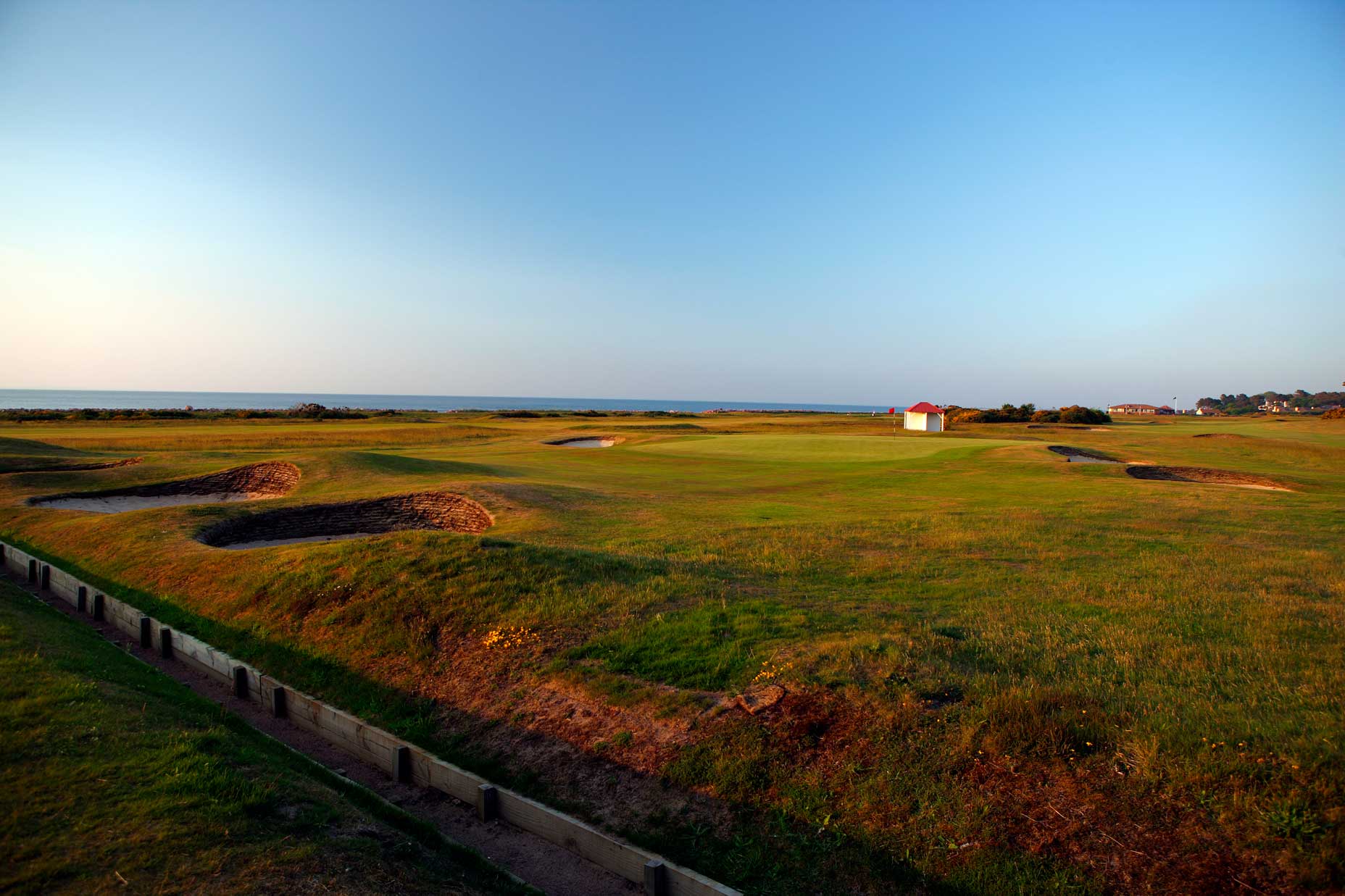
The greens really shine on poor weather days like when we visited GOLF’s No. 62 course in the U.K. and Ireland, keeping up a smooth roll and quick pace.
The course itself has undergone a few routing changes since Andrew Simpson laid out the original links in 1887. Old Tom Morris, James Braid, Ben Sayers and more recently Mackenzie and Ebert have all put their stamp on the track.
Most of the holes run out and back a stretch of coastline on the Moray Firth, east of Inverness, but it switches back on itself several times. For the most part we played the front nine with the breeze before feeling like the back nine was nine million miles long.
The 13th hole is where the course veers inland, into more parkland area as you climb up to an elevated green at the par-4.
However, when you turn back toward the sea for 14th, you’re greeted by one of the most spectacular examples of a Biarritz I’ve ever seen (pictured top). Playing 224 yards from the back tee, the 14th rubs downhill to a green guarded by four devilish pot bunkers. The definitive swale in the middle of the green isn’t so much sunken into putting surface as the rest of the green is risen around it. There are steep slopes on both the front and back sides.
We were lucky our pin position was in the swale, meaning we could actually play chips long of the cup and bring them back off the slope.
The course finishes with a drivable par-4, two medium-length two-shotters and finally a classic links par-5 where the fairway necks in the landing zone, forcing you to thread a needle between three bunkers with your tee shot to have a go at the green.
When you finish, be sure to take some time in the clubhouse and perhaps tour some of the vast collection of artifacts and memorabilia the club keeps as Mills was so graciously able to do for us.
When you leave, there are plenty of other courses to play in the area too as Castle Stuart and Nairn Dunbar are both within 20 minutes. Drive an hour and you’re certain to stumble upon another highland gem like Dornoch, Golspie, Tain, Moray, Fortrose and so many more.




